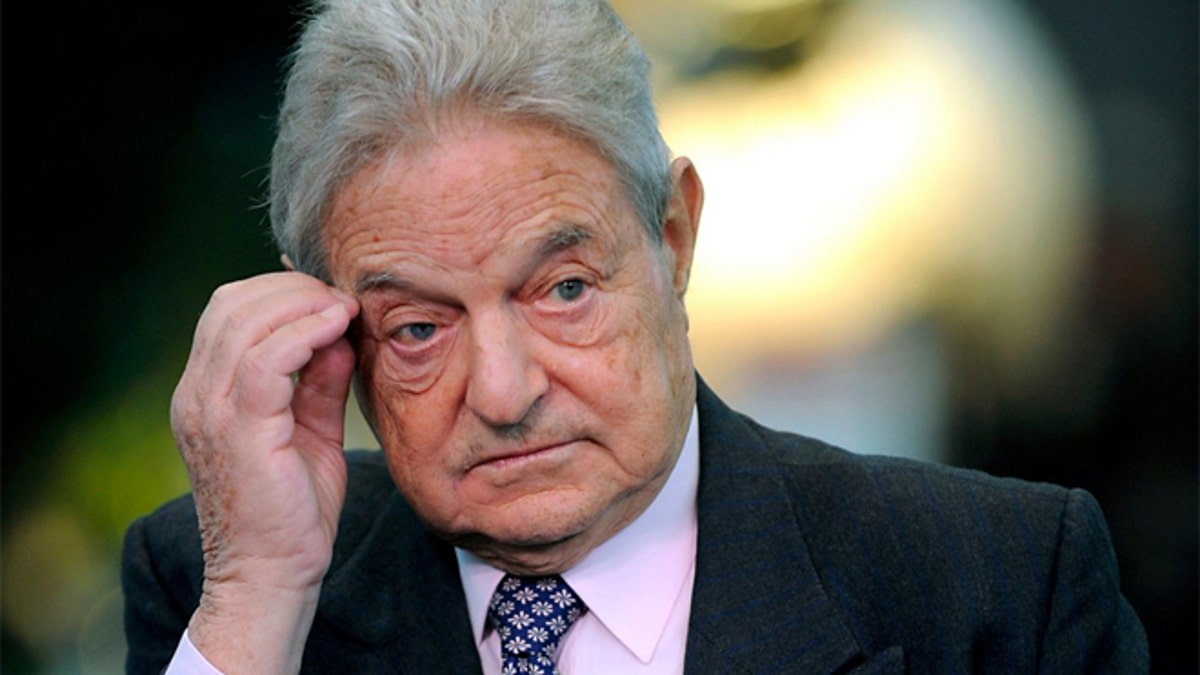
Billionaire George Soros
Billionaire George Soros, who has spent millions of dollars financing Democrats and left-wing causes, used a controversial Panamanian law firm to establish a web of offshore investment partnerships that operate around the world and out of the scrutiny of U.S. regulators, according to leaked documents.
The so-called Panama Papers, a trove of 11.5 million financial documents tracing the Mossack Fonseca law firm’s efforts to help politicians, celebrities and criminals shield their money from taxes, contain links to Soros, who funds the journalism group that is disseminating the information. So far, the International Consortium of Investigative Journalists (ICIJ) has been silent on its benefactor’s ties to the law firm.
Three offshore investment vehicles controlled by Soros are catalogued in the Panama Papers. Soros Finance, Inc. was incorporated in Panama; Soros Holdings Limited was set up in the British Virgin Islands and a limited partnership called Soros Capital was created in Bermuda.
The laws of Panama, Bermuda, the British Virgin Islands and a score of “tax havens” allow foreign firms to hide ownership of cash, real estate and other assets from securities regulators and tax collectors in the countries where they are physically headquartered.
On May 9, client data stolen from the Mossack Fonseca law firm in Panama was published online by the ICIJ as part of its Offshore Leaks database. The searchable database contains a portion of the offshore financial records given to the journalists by anonymous whistle-blowers since 2013; it does not include leaked emails and other explanatory data that ICIJ reporters use to write about the offshore financial holdings of newsworthy individuals.
News stories about offshore bank accounts revealed by the Panama Papers brought down Iceland’s prime minister last month. Heads of state, Hollywood stars, heiresses, arms dealers and drug lords who established secret offshore companies and bank accounts are outed almost daily by the ICIJ. Incorporating a business offshore is not illegal, but President Obama has called for the tax loophole to be sealed shut, saying everyone should “pay their fair share.”
Soros, 86, is worth an estimated $25 billion. His Open Society Institute is one of ICIJ’s main funders, granting it $1.5 million last year. The Panama Papers data reveals only the tip of Soros' offshore iceberg, the Quantum Group of Funds. The ICIJ’s leader, journalist Gerard Ryle, said he had not noticed Soros’ companies in the Offshore Leaks database until FoxNews.com called the matter to his attention.
“I suspect we would have more information [on Soros] because the public database … does not contain the underlying data,” Ryle said in an email FoxNews.com.
FoxNews.com has requested access to that data.
Because it is based offshore, the Quantum Group of Funds is not normally subject to regulation by the United States Securities and Exchange Commission. But in the mid-1990s, Soros Capital bought several SEC-regulated firms, an act which required it to disclose the basic design of the Quantum network of interlocking offshore companies and bank accounts that shield Soros’ billions.
Soros Capital set up an offshore company in the Cayman Islands for the purpose of investing private equity with the Carlyle Group, alongside members of Saudi Arabia’s Bin Laden family. Carlyle’s partners include ex-heads of state and former CIA officials. The private equity partnership specializes in buying and selling weapons manufacturing and intelligence gathering companies with government and military contracts and it also uses secret offshore companies to conduct business.
Offshore Leaks does not include SEC information, but it reveals Soros Capital as a major investor and corporate officer of AIF (Indonesia) Limited. AIF combines private investments with public funding contributed by Asian governments to develop massive infrastructure projects. The database links Soros Capital to Dongya Ports Limited, owned by a tangle of offshore entities.
Soros is certainly newsworthy. In 1992, the self-styled philosopher-economist nearly bankrupted the Bank of England by manipulating the price of the pound. Five years later, he exacerbated a regional economic crisis by betting against Thai and Malaysian currencies. Billions of dollars in profits from Soros’ currency-pummeling moves flowed through the Quantum Group of Funds.
Soros is the sole proprietor of Manhattan-based Soros Fund Management LLC, which controls his offshore empire. In July 2011, Soros closed the multibillion-dollar fund to all but members of his immediate family, allowing him to escape the Dodd-Frank Act mandate for hedge funds to disclose investors and conflicts of interest. A few months later, Soros lost the final appeal of his 2002 conviction by a French court for insider trading. But he remains a potent political force.
In 2014, Soros donated $381 million of Quantum Group of Funds shares to his Open Society philanthropy. The New York-based charitable foundation supports hundreds of advocacy groups, academic research and investigative journalists that align with Soros’ oft-stated goal to promote globalized capitalism and democracy.
On the other hand, the Panama Papers’ leaker, known as John Doe, said that he had exposed the vast cluster of offshore firms and bank accounts, because “income inequality” and “massive, pervasive corruption” are “the defining issues of our time.”
Soros’ offshore companies may not pay U.S. taxes (his spokesperson, Michael Vachon, declined to answer that question), but the billionaire donates lots of money to Democrats who write and enforce the tax laws. In the 2004 presidential election, he contributed $24 million to George Bush’s opponents. He is the largest donor to Hillary Clinton’s campaign for the presidency, plunking down $8 million, so far. He has donated “up to $1 million” to the Clinton Foundation. And Secretary of State Clinton’s emails reveal that Soros has lobbied her on behalf of his interests, which encircle the globe, mostly in the dark.
